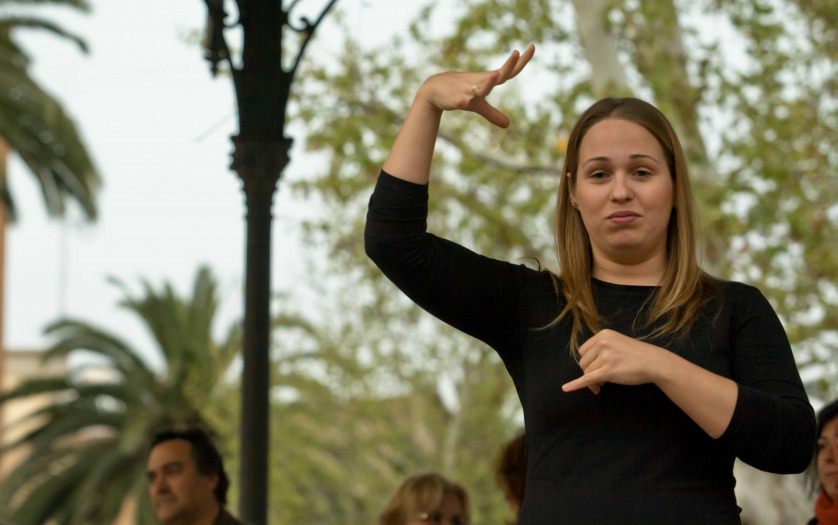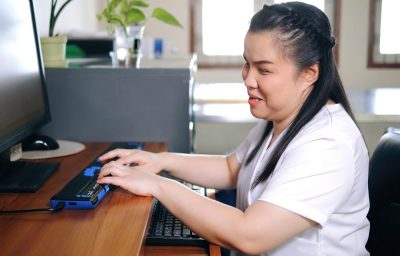
The NSW Parliament’s Upper House has this morning committed to a number of groundbreaking steps to make NSW Parliament accessible to the Deaf community.
This has been prompted by the Upper House Procedure Committee’s landmark Inquiry into Auslan interpretation of Parliamentary proceedings, the report for which was released on Tuesday. Abigail Boyd, Greens NSW MP and Disability Spokesperson, initiated the Inquiry.
The Parliament has today endorsed the Inquiry’s recommendation that, for the first time in NSW’s history, certain proceedings of Parliament be interpreted live into Auslan, so that members of the Deaf community can have immediate access to functions of our Parliament and democracy.
The report also recommended that a summary of happenings in Parliament, including notable legislation being tabled and debated, be recorded in Auslan and published on the Parliament’s website. This will ensure that the Deaf community can keep up to date with the goings-on in Parliament in their natural language.
The conduct of the Inquiry was groundbreaking in and of itself, with the full day hearing being the first ever NSW Parliamentary proceeding to be translated into Auslan.
The report can be found on Parliament’s website.
“The Deaf community is entitled to participate fully in our democracy. But with a lack of live translation of parliamentary procedures, their democratic participation has been denied.” said Abigail Boyd, Greens NSW Upper House MP and Disability Spokesperson.
“Last year Premier Perrottet’s shameless decision to unilaterally scrap Auslan interpretation at Covid pressers sparked universal outrage and highlighted the fact that the Deaf community is cut out of participating in so many parts of our society.
“I initiated this Inquiry to make some inroads towards a Parliament that is more welcoming and inclusive of people whose natural language is Auslan. I am so pleased to say that with today’s commitment we are well on our way.
“When I set up this Inquiry, I was hopeful we would see some progress towards awareness, accessibility, and inclusivity for the Deaf community, but today’s powerful commitment to translate key proceedings is beyond my expectations.
“There is still so much to do to ensure our democracy, and the entirety of our society, is accessible for the Deaf community. But taking this important action in Parliament is an important start.”








